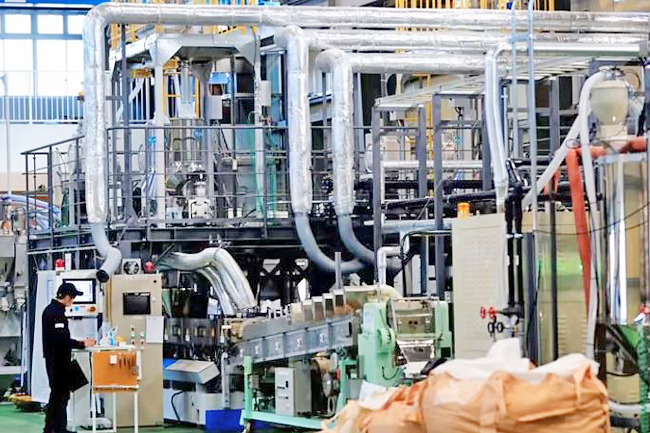CNA – Japan’s factory activity contracted for the sixth straight month in April, but the details of a private survey released yesterday showed the manufacturing sector was edging towards stabilisation amid a slower decline in new orders.
The final au Jibun Bank Japan Manufacturing Purchasing Managers’ Index was up slightly at 49.5 in April from March’s 49.2, and matched the flash reading.
New orders contracted at the softest pace since July while remaining below the 50.0 threshold for a tenth consecutive month as inbound demand stabilised moderately.
Factory output also contracted for a tenth consecutive month, with some manufacturers citing that raw materials shortages had weighed on production.
The final PMI reading comes after government data last week showed Japanese factory output rising slightly in March while a survey of manufacturers forecast a 4.1 per cent increase in April.

Japan’s economy is recovering moderately from the COVID-driven downturn, but there is a rise in bankruptcies, a Japanese government monthly economic report said last week, while reiterating a warning against global financial volatility in response to the recent Western bank collapses.
Input price inflation eased to its slowest pace since August 2021, although prices were still relatively high to due rising costs for raw materials.
Those cost pressures were evident in output price inflation, which expanded at the strongest rate to a five-month high as companies sought to secure profits through higher selling prices.
Supplier delivery delays, which have been below the 50.0 threshold since February 2020, were the least prevalent in the current sequence for April, the survey showed.
“Firms often attributed this to the weaknesses in demand, however, which had reduced pressure on material availability,” said economist Usamah Bhatti at S&P Global Market Intelligence, which compiles the survey.
Employment grew at the strongest pace since October, while business confidence remained robust and little changed from March.


